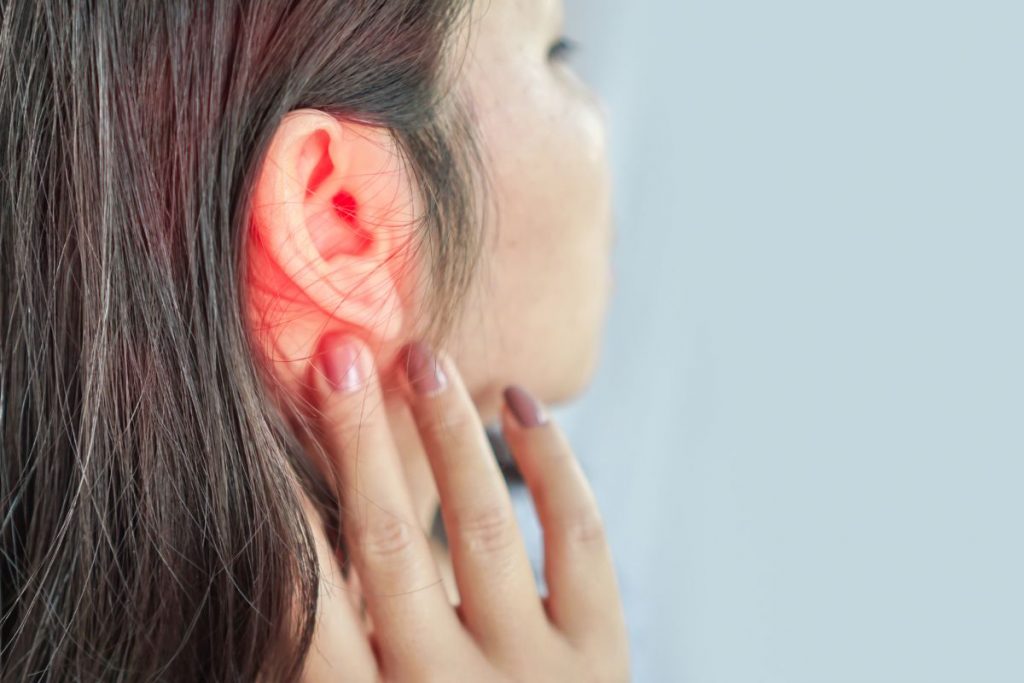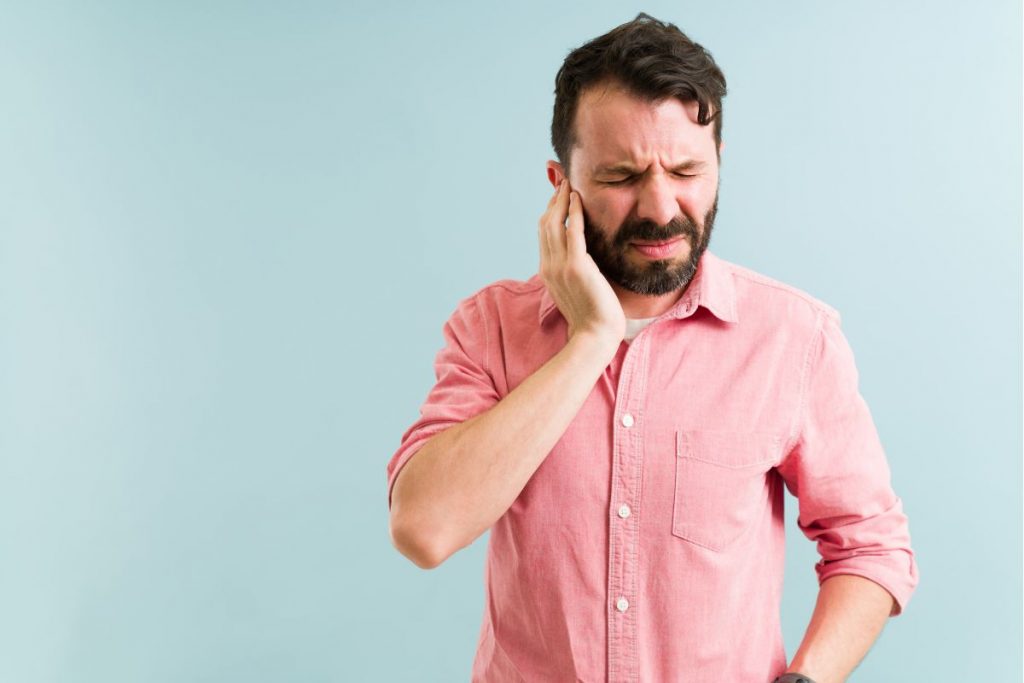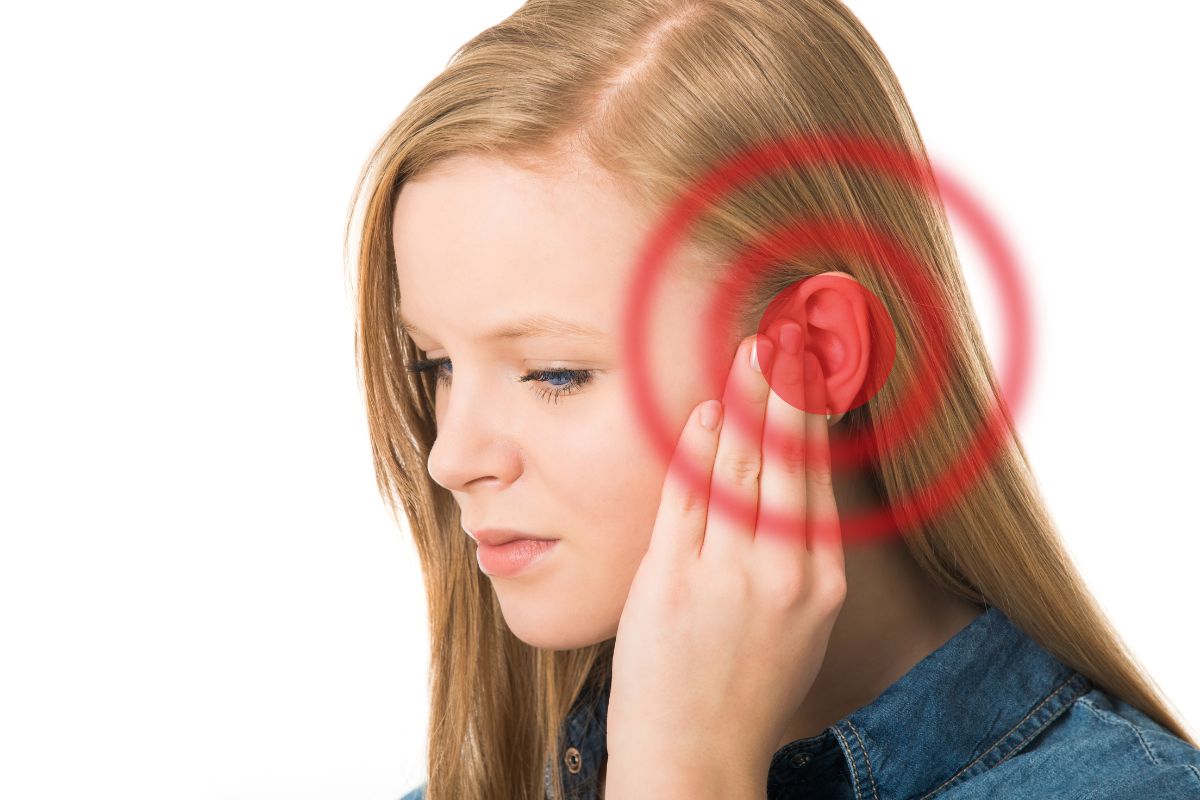Introduction

Are the persistent ringing and buzzing sounds in your ears causing you concern? You’re not alone. Tinnitus, often described as the perception of sound when no external sound source is present, is a phenomenon that has intrigued and puzzled many. From the subtle chirping to the intrusive roaring, these phantom noises can disrupt daily life and raise questions about their origins. But when should you start to pay more attention to this auditory phenomenon? Let’s delve into the world of tinnitus and explore the factors that determine whether it’s just a passing annoyance or a signal to take action, guided by the expertise of Dr. Shree Rao, a distinguished specialist in the field of tinnitus.
What is Tinnitus?
Tinnitus, often referred to as “ringing in the ears,” is a perplexing auditory sensation that involves the perception of sounds without any external sound source. These sounds can take various forms, such as ringing, buzzing, hissing, or even roaring. Tinnitus can be either subjective, heard only by the person experiencing it, or objective, where the sound can also be detected by others. It’s important to note that tinnitus itself is not a medical condition but rather a symptom of an underlying issue.
Tinnitus manifests in a myriad of ways, with its symptoms ranging from the faintest hum to a piercing shriek. This puzzling auditory sensation can stem from a variety of sources, both internal and external. From exposure to loud noises to age-related changes in auditory perception, the causes of tinnitus span a spectrum of possibilities. It’s important to distinguish between different types of tinnitus, such as non-pulsatile tinnitus, characterized by continuous or intermittent sounds, and pulsatile tinnitus, which synchronizes with the heartbeat. The question that often arises is whether tinnitus is a transient disturbance or a persistent condition that requires attention.
Symptoms of Tinnitus
The symptoms of tinnitus can vary widely from person to person. Some individuals describe it as a faint background noise, while others are plagued by loud and intrusive sounds that disrupt daily life. Tinnitus can be intermittent or continuous and may occur in one or both ears. Additionally, the perceived pitch and intensity of the sounds can differ. Those experiencing tinnitus might also notice associated symptoms like difficulty concentrating, sleep disturbances, and heightened stress levels due to the persistent noise.
What Causes Tinnitus?
Tinnitus can arise from a multitude of factors, making it a complex phenomenon to pinpoint. Noise-induced hearing loss, often a result of exposure to loud environments, is a common cause. Age-related changes in the auditory system, where the delicate hair cells in the inner ear deteriorate, can also contribute to tinnitus. Other potential causes include earwax blockage, middle ear infections, certain medications, and underlying medical conditions like high blood pressure and diabetes.
Tinnitus can arise from a multitude of factors, making it a complex phenomenon to pinpoint. Noise-induced hearing loss, often a result of exposure to loud environments, is a common cause. Age-related changes in the auditory system, where the delicate hair cells in the inner ear deteriorate, can also contribute to tinnitus. Other potential causes include earwax blockage, middle ear infections, certain medications, and underlying medical conditions like high blood pressure and diabetes.
Four Types of Tinnitus
Tinnitus isn’t a one-size-fits-all experience; it comes in different forms, each with its unique characteristics. Understanding these variations can shed light on the underlying causes and guide appropriate management strategies.
This is the most common type of tinnitus, where only the person experiencing it can hear the sound. It can manifest as a ringing, buzzing, or humming sensation. Subjective tinnitus is often associated with factors like noise exposure, age-related hearing loss, or certain medical conditions.
Unlike subjective tinnitus, objective tinnitus is a sound that can also be heard by others, often through a stethoscope or by placing an ear against the affected ear. This type is usually linked to vascular issues or muscle contractions near the ear.
This type involves hearing a rhythmic sound that coincides with the heartbeat. It’s commonly associated with blood flow changes near the ear, like blood vessel abnormalities or hypertension. Pulsatile tinnitus may require specific diagnostic tests to pinpoint the underlying cause.
Neurological conditions, such as disorders affecting the auditory nerve pathways or the brain’s processing of sound signals, can result in neurological tinnitus. This form may be linked to conditions like multiple sclerosis or Meniere’s disease.
By recognizing the distinct types of tinnitus, individuals and medical professionals can tailor interventions and treatments to address the specific underlying factors contributing to the sensation of sound in the ears.
When faced with the enigma of tinnitus, a common question arises: Does tinnitus go away on its own? The answer, like the phenomenon itself, is not one-size-fits-all. While some instances of tinnitus may be temporary, caused by factors like excessive noise exposure or earwax accumulation, others could signal an underlying health concern. This is where the crucial question emerges: When should I worry about tinnitus? Recognizing the red flags and knowing when to seek professional guidance is vital for your auditory and overall well-being.
Does Tinnitus Go Away?
The persistence of tinnitus varies widely. Temporary tinnitus triggered by loud noise exposure or earwax blockage may subside on its own. However, chronic tinnitus, especially when associated with underlying medical conditions, may be more enduring. Seeking medical evaluation is crucial to determine the underlying cause and potential treatment options.
In this article, we’ll embark on a journey to decode the nuances of tinnitus, addressing its various causes, manifestations, and the factors that determine when it’s time to seek medical advice. Whether you’re curious about the origins of those persistent sounds or genuinely concerned about their implications, this exploration aims to empower you with knowledge, guiding you toward informed decisions about your auditory health. So, let’s delve into the intricacies of tinnitus and navigate the path to understanding when those ringing sounds are simply passing echoes or signals that merit your attention.
When Should I Worry About Tinnitus?

While occasional, mild tinnitus might not be a cause for immediate concern, certain signs warrant medical attention. Sudden and severe tinnitus, tinnitus accompanied by dizziness or balance issues, tinnitus after head injury, or tinnitus affecting only one ear could signify a more serious underlying condition. Consulting a medical professional can help identify potential causes and appropriate interventions.
In conclusion, tinnitus is a multifaceted auditory sensation with a range of potential causes. Understanding its manifestations and knowing when to seek medical advice can empower individuals to address this phenomenon and prioritize their auditory health. If tinnitus becomes persistent, bothersome, or is accompanied by concerning symptoms, don’t hesitate to reach out to a healthcare provider for a comprehensive evaluation and personalized guidance.
If you’re seeking expert assistance for tinnitus-related concerns, consider consulting EarSurgeon, Dr. Shree Rao, a leading ear specialist and otolaryngologist. With her extensive expertise in the field, she can provide tailored solutions to help manage and alleviate tinnitus-related issues effectively. Your auditory well-being matters, and seeking the right support can make a significant difference.

Why consult EarSurgeon, Dr. Shree Rao?
Dr. Shree Cuddapah Rao is acclaimed as one of the best pediatric ENT specialists in Hyderabad. With 10+ years of deep domain experience in the field of ENT, she is the director at Dr. Rao’s ENT Super Specialty Hospital. She underwent specialized training in Rhinoplasty / Facial Plastic surgery at Singapore General Hospital, Singapore. She also underwent advanced training in cochlear implant surgery under Padmashri Dr. Milind V Kirtane and had a Fellowship in a cochlear implant. Having performed over 200 successful cochlear implants for patients worldwide, Dr. Shree Cuddapah Rao is also the recipient of several prestigious accolades in the domain of ENT. Dr. Shree Rao is one of the best ent doctor in hyderabad, to book an appointment click here.
Are you looking for
then you have landed at right place!






